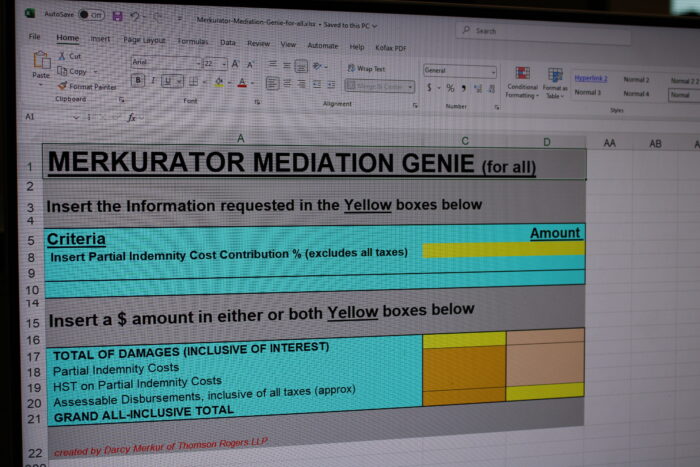Persuasion Vs. Litigation When Disputing Treatment Plans
Author(s): Stephen M. Birman*
April 26, 2021

I spend a lot of time trying to persuade insurance adjusters to approve treatment plans in order to avoid License Appeal Tribunal (“LAT”) disputes. Often, I will work with the treatment team and my client to “make the case.” Sometimes, when adjusters are not being reasonable, I will ask that their supervisor also be part of the conversation.
I do this because fighting treatment plans at the LAT is almost always futile. That is not to say that such applications should never be pursued. Sometimes you have no choice.
Take the example of a $2,000 treatment plan for psychotherapy. The accident victim needs therapy NOW. The insurance company has denied the treatment plan after sending the victim for an assessment or assessments (that likely cost them $2,000 or more). I am scratching my head too…
So what’s next? The therapy is required urgently and not in 18 months. The cost of a LAT dispute will likely be many times the value of the disputed plan itself.
Rather than pursue a LAT application as a first resort, I recommend taking all possible steps to try and persuade the adjuster to approve the reasonable treatment plan.
A couple of suggestions include the following:
- Call the adjuster with your client on the line and allow your client to explain why treatment is necessary. It’s a lot harder to say “no” to someone directly that doing so by letter.
- Arrange a meeting or team call with the adjuster to persuade him or her to approve the plan. Having multiple rehabilitation providers supporting treatment and explaining the consequences of failing to approve the treatment can make a big difference.
- Highlight flaws in an IE assessment. Where an assessor has completed a shoddy assessment or used the wrong legal tests, or not given the victim the time of day, make it known that such a report is deeply flawed and could result in a special award.
- Have the client or provider write a letter of support. In a recent case, my client was so distressed about an insurance assessment and how she was treated that she wrote a heartfelt letter to the adjuster, which led to a denial being immediately reversed.
- Where a denial or conduct is egregious, bring the adjuster’s supervisor into the process to try and correct any obvious errors.
If all else fails, ask for the names of everyone at the insurance company who has reviewed and approved the decision to deny necessary treatment. If you end up at a LAT hearing they are all potential witnesses and you will want to have all of your efforts documented. However, if you can avoid the LAT and succeed in having the adjuster reconsider their decision, you are doing a great service for the victim who needs treatment and not a fight.
Thomson Rogers offers free consultations so please feel free to reach out to us at any time. We are here to help.
Thomson Rogers partner Stephen Birman has been recognized as a Certified Specialist in Civil Litigation by the Law Society of Ontario and ranked AV pre-eminent in Martindale-Hubbell ®. Stephen’s practice focuses on personal injury litigation and class actions. You can reach Stephen at 416-868-3137 or by EMAIL.
For Thomson Rogers updates please subscribe to our email list here.
Share this





